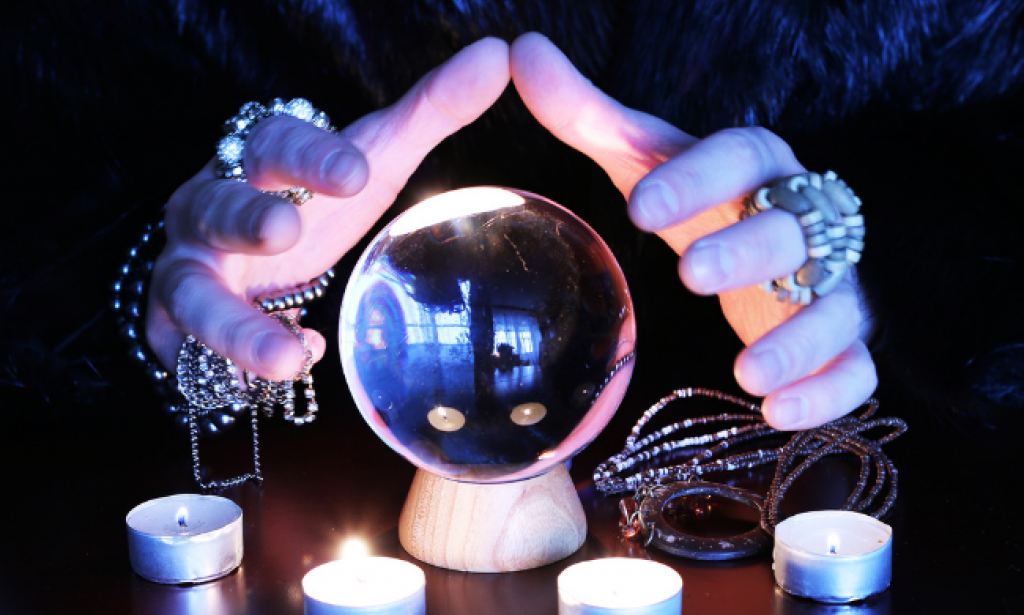Since the earliest days of history, people have devised ways for predicting the future. Probably every culture in the world has had it's class of fortune-tellers, whether they were called soothsayers, augurs, oracles, diviners, witch doctors, prophets or shamans. In ancient times, Kings and rulers often consulted their fortune-tellers when planning wars and political campaigns or when making any other important decisions. The course of history has probably been influenced by the good advice of fortune-tellers.
The ancient fortune-tellers predicted the future through omens and oracles. Omens were often natural events, such as flights of birds, eclipse of the moon, and flashes of lightning. Equally "ominous" were the markings on animal skins, dreams and visions, and particularly the entrails of animals that had been sacrificed.
Oracles were believed to be direct communications from a God to man
The divine communications was supposed to take place in a sacred grove or grotto and was transmitted through a priestess. According to the ritual the priestess would inhale certain fumes and go into a trance. She would then receive and communicate the message of the God. The most famous oracle in ancient times was the Delphic Oracle I Greece, through which the god Apollo issued his prophecies and commands.
Today, Fortune-telling is widely practiced in primitive cultures. For example Zulu witch doctors continue to call up the spirits of the dead for information about the future. In addition, similar rituals, called séances, are attended by many believers in civilized societies.
Tricks of Fortune-tellers
Certain kinds of Fortune-tellers, such as palmists, astrologers, and numerologist, or number specialists, claim to be scientific and to have famous men among their followers. However, the public exposure of certain tricks and devices has made most people skeptical of Fortune-telling. For example, it has become known that fortune-tellers hire accomplices to investigate the background of their clients. As a result the fortune-teller can appear to have miraculous knowledge of the life, personal affairs and problems of a client.
Another favorite device of fortune - tellers is to give extremely vague predictions, which could be expected to apply to anyone. Most people can expect, at one time or another, to lose a "loved one", "meet with some disaster", or experience some change in their life.


You must be logged in to post a comment.